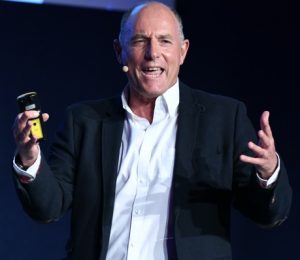17 Nov BLOG: Men’s Health Awareness Month 2022
With the month of November, comes ‘Movember’ – a campaign dedicated to changing the face of men’s health by raising awareness of men’s mental health and suicide prevention, prostate cancer and testicular cancer.
Many men struggle with opening up about their physical and mental health.
“We respond differently to life’s unexpected challenges. Sometimes, though, that can leave us feeling worried or overwhelmed. It’s our hope that we can connect men with the right support and equip their peers with the confidence and skills to reach out and help when it’s most needed.” – Brendan Maher, Global Director of Mental Health and Suicide Prevention, Movember[1]
Mental health problems affect both men and women, but not in equal measure.
Did you know that men are dying on average five years earlier than women, and for largely preventable reasons? A growing number of men – around 10.8M globally – are facing life with a prostate cancer diagnosis, with testicular cancer representing the most common cancer among young men.
According to the Office for National Statistics, there were 5,219 suicides registered in in the UK in 2021. And across the world, one man dies by suicide every minute of every day, with males accounting for 69% – almost three quarters – of all suicides.[2]
Research also suggests that men are almost half as likely as women to report seeking professional help for their mental health concerns.[3]
There are a wide range of factors that can contribute towards men not seeking help when they need it. One of the most dominant is the concept of masculinity and the stigma that society attaches to it; seeking help often means having to rely on others, admit there is a problem and express emotions but these behaviours conflict with societal messages like, ‘men are self-reliant and tough’ and ‘men don’t express emotions’.
 Co-Founder of Minds@Work and former Global VP of HR for Unilever, Geoff McDonald explains that each and every one of us has the power and the influence to change the conversation around mental health in the workplace.
Co-Founder of Minds@Work and former Global VP of HR for Unilever, Geoff McDonald explains that each and every one of us has the power and the influence to change the conversation around mental health in the workplace.
During an inspiring talk at Oakleaf’s and Surrey Chambers’ Surrey Workplace Mental Health Forum this month, Geoff named three things you can do to reduce stigma:
- Reflect on your own relationship to mental ill-health – whether it’s one of intolerance or true compassion, without judgement – and challenge others to reflect on theirs. Encourage those who are intolerant to be curious, to learn about mental health, and perhaps talk to people who have struggled in the past.
- Get the conversation going in your workplace; for those struggling and suffering in silence out there, give them that chance to have a conversation. Even just one conversation could save a life.
Speaking of a good friend of his who had very sadly taken his own life, Geoff shares, “I thought to myself, what’s the difference in our two situations. Here I am in 2012, learning every day to recover and love as an anxiety-fuelled depressive, and my friend is gone. The only difference was my ability to talk and his inability to talk.
“Now, I cannot say that had he been able to have a conversation, that he would still be here today. But I think there’s a better chance. Think of a grain of salt, how so very tiny it is, and imagine if he’d been able to have one conversation. There is a tiny chance he would still be alive today.
“And the conclusion I came to that night was that stigma had just killed my friend, and that I have to do something about that.”
- When you’re ready, when you feel supported enough, tell your story. Storytelling is possibly one of the most powerful drives for change. With stories, you will bring love, support and hope. “Because every single story that we tell is like sending a lifeboat out into the ocean, and those billions of people who are suffering in silence will cling onto that story and realise they are not alone; they are just normal human beings.”[4]
It is so important to remind your friends, family and loved ones that no matter what – and no matter who you are – support is out there. Help is always available, whether that be through Oakleaf, your GP, friends and family, crisis lines or emergency support services like the Guildford Safe Haven.
 Oakleaf’s Outreach Engagement Project Lead and coach of the Oakleaf football team ‘The Mighty Oaks’, Kelvin Bossman says:
Oakleaf’s Outreach Engagement Project Lead and coach of the Oakleaf football team ‘The Mighty Oaks’, Kelvin Bossman says:
“It’s one thing knowing that you can access professional support but another thing knowing how and where to do so. At Oakleaf, we aim to make our services accessible to all. Since the beginning of the pandemic, much of our support had to be delivered remotely, meaning we had to form a separate, online community for clients.”
Seeking help online, specifically for men, can provide anonymity and feelings of self-directed help that don’t clash with someone’s sense of masculinity.
“We offer clients the option to choose how they are supported. Whether that be virtually, in-person or over the phone. This spans Oakleaf’s offering of work-related training, employment guidance, wellbeing activities and support groups, counselling and one-to-one emotional support, so that the charity can accommodate as many people as possible.
“We have held a Men’s Mental Health group in the past and continue to run a wide range of mental health support groups and workshops throughout the year, including: Mental Health Support group, Youth group, Check-in and Chat, Confidence Building, Emotional Resilience, Stress Management and Self Esteem workshops, and many more.
“These act as safe spaces for men without judgment; places where you can talk about anything – whether that be climate change, past times or simply how you’re feeling in the moment.”
If you or someone you know is struggling, please do get in touch. To become a client with Oakleaf, you can either refer yourself by completing our online referral form on our website or you can ask your GP, psychiatrist or key worker (Social Worker, CPN, Enabling Independence Team Worker) to refer you.
You can also get involved and raise much-needed funds and awareness this #MensHealthAwarenessMonth by growing a moustache during #Movember or by creating your own personal challenge or fundraiser with family and friends!
But most importantly, make a point of checking in on those you love.
The premise behind Men’s Health Awareness Day also aligns with Mental Health First Aid (MHFA) England’s hopes to create a society where everyone’s mental health matters. MHFA is an internationally recognised training course which teaches people to spot the symptoms of mental health issues, offer initial help and guide a person towards support. To find out more about Oakleaf’s MHFA training, please click here.
If you or someone you know is struggling, please make use of the resources below:
Oakleaf: 01483 303649 | info@oakleaf-enterprise.org
SABP Crisis Helpline: 0800 915 4644
Samaritans: 116 123 (24 hours)
Mind: How to Find a Therapist
Citizens Advice: 03444 111 444 (Mon-Fri, 9am-5pm)
Surrey Safe Havens: 6-11pm, 365 days a year
[1] Brendan Maher, Movember (2022)
[2] Office for National Statistics (2021)
[3] Oliver et al. (2005)
[4] Geoff, McDonald ‘Surrey Workplace Mental Health Forum’ (2022)




Sorry, the comment form is closed at this time.